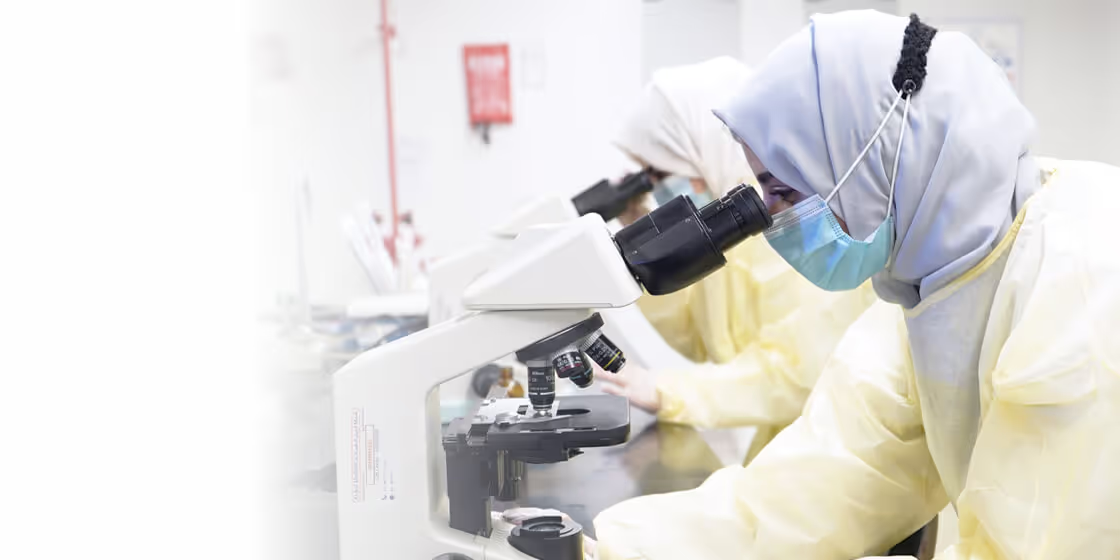Before you continue
By clicking “Accept All”, you agree to the storing of cookies on your device to enhance site navigation, analyze site usage, and assist in our marketing efforts.

The Bachelor of Medical Laboratories Sciences (MLS) degree depends on the study of both scientific and humanity aspects, which provides the foundation for continuous development in the MLS student’s education and career. In addition to that, the MLS program reflects the recent changes in the roles of our healthcare providers to prepare students to meet the high demand in Saudi Arabia. The program was designed to allow students, during the four years of study, to build their professional competencies and give them the opportunity to enjoy academic excellence, self-direction, and the ability to realize the practical aspects of the career life. The MLS program aims to prepare qualified professional medical laboratory specialists according to national educational standards, able to participate in scientific research with commitment to community engagements. Medical sciences are developing rapidly and require manpower that is highly skilled and proficient enough to fulfill their roles.
Through different teaching and learning strategies, including curricular and extra-curricular activities to achieve the program learning outcomes in all areas. This includes interactive lecture, small group discussion, team-based learning, assignment, tutorials, flipped classes, research activities, students prepared presentations, case based learning and practical demonstration.
Through direct assessment method and indirect assessment method, direct assessment method includes written exams (MCQs, EMQs and Essay), assignment evaluation using rubrics, presentation evaluation using rubrics, portfolio (research activities, community services activities assignment, case study and reflection), OSPE and lab manual Evaluation, while in indirect assessment method include course learning outcomes survey.
Upon successful completion of the requirements for the Bachelor of Medical Laboratory Sciences Program, the graduates can apply for “Laboratory Specialist” license from the Saudi Commission for Health Specialist (SCFHS). Laboratory Specialist may work in hospitals, clinics, forensic, public health laboratories, biotechnology companies and research institutions. In addition, graduates may seek specializations to advance their careers through Post Graduates Studies. Also, graduates would have the knowledge, skills, and values to be eligible to apply for an academic position such “Lab Supervisor”.
A Medical laboratory specialist will be responsible to analyze a variety of biological samples using sophisticated equipment, results will be reported to the physician and data provided will play a major role in diagnosing and treating different medical conditions and monitoring disease processes. There are different areas of medical laboratory which include microbiology, chemistry, hematology, immunology, blood transfusion, toxicology, histology and molecular diagnostics. With additional training and experience, Laboratory Specialist can become a department leader or lab manager, and with more intellect and interest in science and technology a Laboratory Specialist may select medical laboratory scientist career to be involved in different scientific research laboratories.
All students are invited and encouraged to constantly meet with career counselors assigned by the Student Career and Alumni Unit (SCAU). Student career counseling is a process that helps students to know and understand their skills, abilities, and interests, and how it relates to the workplace in order to make an appropriate decision concerning their future career path. It is a dynamic and collaborative process between a faculty staff member and student, focused on the student’s needs and goals.